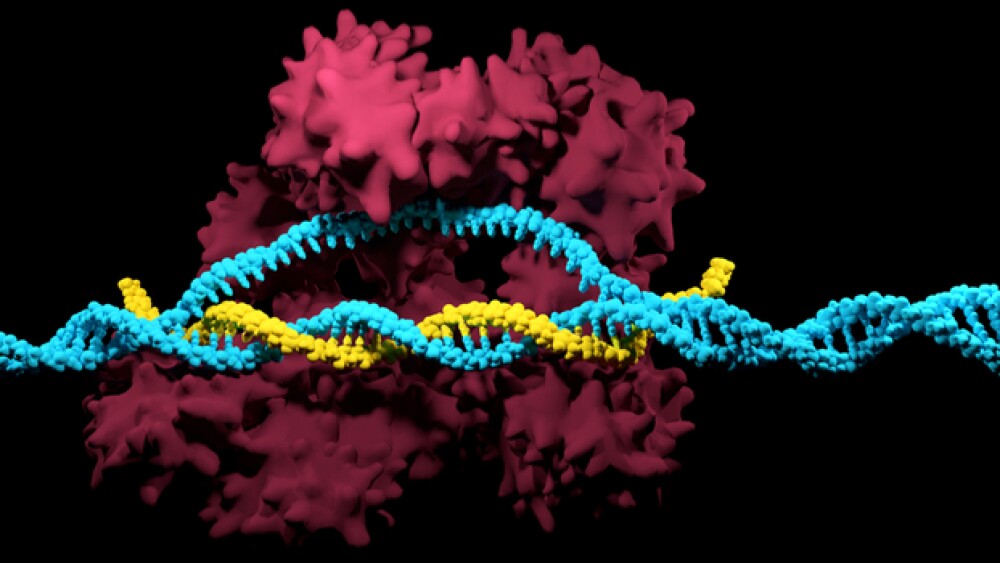Chinese researcher He Jiankui earlier reported that a set of twins had been born who underwent CRISPR gene editing as fetuses. He followed up last night, stating that another one of the seven couples he experimented on is pregnant.
Earlier this week Chinese researcher He Jiankui reported at the Second International Summit on Human Genome Editing held at the University of Hong Kong that a set of twins had been born who underwent CRISPR gene editing as fetuses. He followed up this extremely controversial statement that another one of the seven couples he experimented on is pregnant, although it is still early.
He Jiankui, affiliated with the Southern University of Science and Technology of China in Shenzhen, used CRISPR-Cas9 gene editing to alter the DNA of embryos for seven couples in China. He was assisted by Michael Deem, one of his graduate advisers at Rice University in Houston. Deems also holds a small stake in two commercial genetics companies He Jiankui launched in China.
What He Jiankui and Deem did was use CRISPR gene editing on human embryos to disable a gene called CCR5. This gene creates a protein that allows HIV to enter a cell. All the men of the seven couples had HIV and the women did not.
The CRISPR editing was performed during in vitro fertilization (IVF). The sperm was “washed” to separate it from semen, where HIV is present. Then a single sperm was inserted into a single egg to create an embryo. Then the CRISPR-Cas9 gene editing tool was applied.
When the embryos were 3 to 5 days old, several cells were examined for editing. At that time the couple could choose whether to go ahead and use edited or unedited embryos for their attempted pregnancies. In total, 16 of 22 embryos were edited and 11 were used in six implant attempts.
He Jiankui announced the research and the apparently successful birth of twins, Lulu and Nana, from one set of parents.
Researchers worldwide, as well as bioethicists, have broadly condemned the research. Both Rice University and Southern University have launched independent investigations, as well as the Chinese government. A group of more than 100 Chinese scientists co-signed a letter calling the research “crazy.”
Jennifer Doudna, one of the inventors of CRISPR, a scientist at University of California-Berkeley, told ABC News, “This is a truly unacceptable development. I’m grateful that he appeared today, but I don’t think that we heard answers. We still need to understand the motivation for this.”
This was echoed by David Liu, of Harvard and MIT’s Broad Institute, who invented another version of CRISPR. “I feel more disturbed now,” he told ABC. “It’s an appalling example of what not to do about a promising technology that has great potential to benefit society. I hope it never happens again.”
At this point, although He’s research and presentations have been reviewed by scientists at the conference, it has not yet been published in a peer-reviewed technical journal or independently confirmed. He has also refused to answer all questions directed toward him, particularly related to who paid for the work, why he kept it secret while he was doing so, and how he made sure that parents involved in it fully understood the risks and benefits of the procedure.
Many are arguing that this is a case of the scientific community’s failure to self-regulate.
Qui Renzong of the Chinese Academy of Social Science has spoken out about the conference organizers allowing He to speak at the meeting until his work had been reviewed by independent experts. Although it’s not yet clear if He violated reproductive medicine laws in China, Qui believes he did, but also noted that there is no penalty for it.
Qui Renzong also called on the United Nations to hold meetings in order to develop an international agreement and guidelines on heritable gene editing.
When questioned about why He Jianqui conducted his research in secret, he indicated he had consulted with at least four experts, including one professor from the U.S. and one from China. Currently on unpaid leave from Southern University, part of a three-year sabbatical that began in February, He said the university was not aware that he used his research funding to pay for this HIV CRISPR trial.
William Hurlbut, an ethicist at Stanford University, told ABC that he had “spent many hours” talking with He Jianqui. “I knew his early work. I knew where he was heading.” Hurlbut said he didn’t know He had tried and achieved pregnancy with edited embryos but “I strongly suspected it.”
Hurlbut went on to say, “I disagree with the notion of stepping out of the general consensus of the scientific community.” If researchers don’t consider it safe enough or enough is known about it, “it’s going to create the misunderstanding, discordance and distrust.”
Initially, there were eight couples enrolled in the clinical trial, but one couple dropped out. Of the seven remaining, 30 embryos were developed. Of those, 70 percent have been edited, according to He Jianqui. But he says the continuation of the trial has been placed on hold “due to the current situation.”
Click here to see thousands of life science jobs on BioSpace’s job board.





